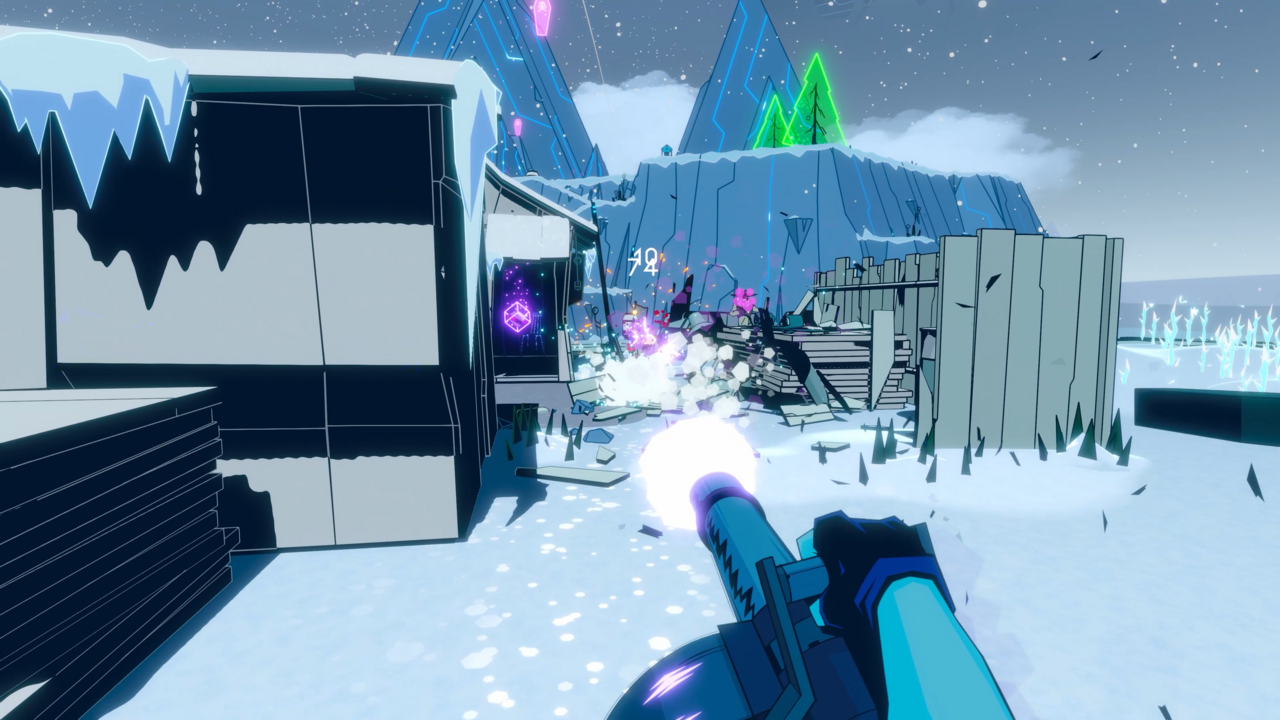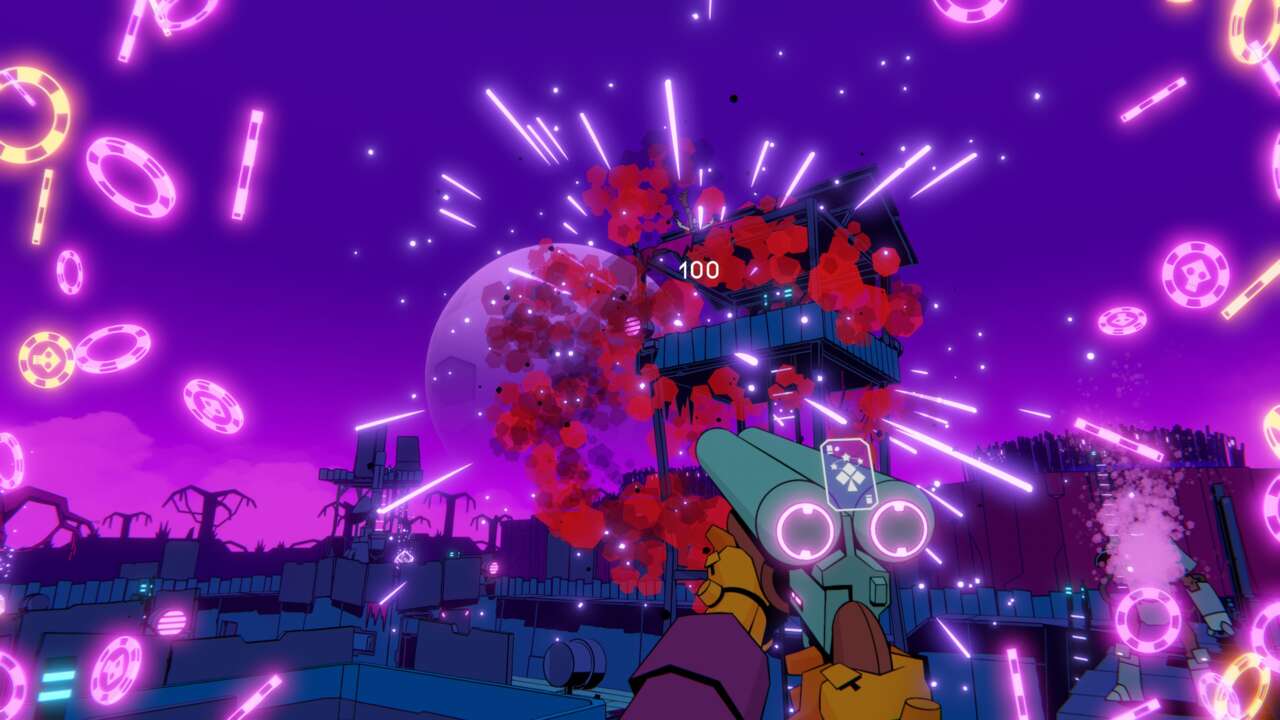Blue Manchu's Wild Bastards is a neon-soaked mishmash of the strategy, FPS, and roguelike genres, albeit one with cowboy hats and six shooters. Much like its predecessor, Void Bastards, it layers dozens of systems and mechanics on top of each other to create a deep and varied experience that sees you exploring a galaxy, managing a crew of outlaws, and gunning down countless enemies. Based on what I played, it seems like Blue Manchu has once again figured out how to cleverly merge all these systems and mechanics into a cohesive whole.
During a preview, I got 30 minutes of hands-on time with Wild Bastards, and from what I've played, it's structurally very similar to Void Bastards. You plot a path across a board game-like map filled with combat encounters, points of interest, and loot. Each run is different and a lot of those differences are determined by the planet and its traits. Some planets have low gravity, for example, while others could have hazardous weather. Throw in different enemy types and locales, and there’s plenty of variety from run to run.
However, Wild Bastards isn’t just a rootin'-tootin' duster wearin’ reskin of Void Bastards. Developer Blue Manchu made some fundamental changes to accommodate the western, sci-fi setting. It ditches Void Bastards’ stealth gameplay and tight corridors in favor of fast-paced action and arena-style maps. Perhaps the biggest shake up is the introduction of “outlaws.” While Void Bastards adopted a roguelite progression system similar to Rogue Legacy where each run introduces a new character with different traits, Wild Bastards gives you a crew of up to 13 outlaws each with different weapons, playstyles, strengths, weaknesses, and skill trees. Once you’ve selected a planet, you put together a crew and loot-and-shoot your way across the map.
Even though Wild Bastards is a single-player experience, the outlaws give the game a hero shooter-like feel. Each character plays radically differently. Preach--a somber looking preacher adorned in black--carries an enormous minigun that shreds through rank and file, but takes some time to reload. Meanwhile, a mind flayer looking creature named Billy is packing two six shooters that function like, well, two six shooters. Outlaw’s aren’t limited to firearms, though. One outlaw--appropriately named Kaboom--let me hurl dynamite, while another was equipped with a laser lasso that could trap and damage enemies over time.
What makes Wild Bastards combat stand out is how you can mix and match different outlaws and swap between them on the fly as if you’re switching weapons. I found myself gravitating toward Preach and Kaboom. I could cut down my weaker foes with Preach’s rip roarin’ minigun, then switch to my dynamite outlaw to clean up the tougher enemies.
Even though swapping between outlaws is as easy as switching weapons, each outlaw has their own health bar. If an outlaw’s health drops to zero they are out of action for the rest of the expedition. Success in Wild Bastards is keeping your crew alive long enough to chart a path across the entire planet and looting as much as your wild bunch can carry. Like Void Bastards, there’s a constant push and pull of its risk-reward style gameplay and progression. Do you forge ahead while your outlaws are weak and injured or do you retreat to your ship and lick your wounds?

One of Wild Bastard's more interesting mechanics is how your outlaws' relationship to one another changes over time. It turns out, outlaws with big personalities don’t always get along, and in between missions you’ll need to manage those relationships. If two outlaws don’t like each other, then you can’t bring both of them on the same mission. If they really like each other, they might support each other at crucial moments in battle. During my preview, one of my outlaws gave the other a health boost at a critical moment saving my posse from an early grave. These relationships are forged and broken during the narrative and on the battlefield. If two outlaws are paired together during a mission, a feud might develop. Damaged relationships can be mended and strengthened with a tasty can of beans, but beans can only be acquired on planets.
It was hard to see how far-reaching this system was based on my short demo, but it seems like it could be an interesting wrinkle for a game that subtly draws from the hero shooter well. Two outlaws might synergize well, but if they don’t get along, you might be forced to work outside of your comfort zone until you can repair their relationship.
Like Blue Manchu’s previous work, Wild Bastards seems to be an interesting genre bending and blending mashup that pulls together some of the most popular genres in a smart and succinct way. It’s hard to say if this hero shooter approach fits Wild Bastards as well as the stealth and immersive sim mechanics of Void Bastards, but I’m eager to play more of it, nonetheless. Wild Bastards is scheduled to arrive on PC and consoles later this year.
Got a news tip or want to contact us directly? Email news@gamespot.com
